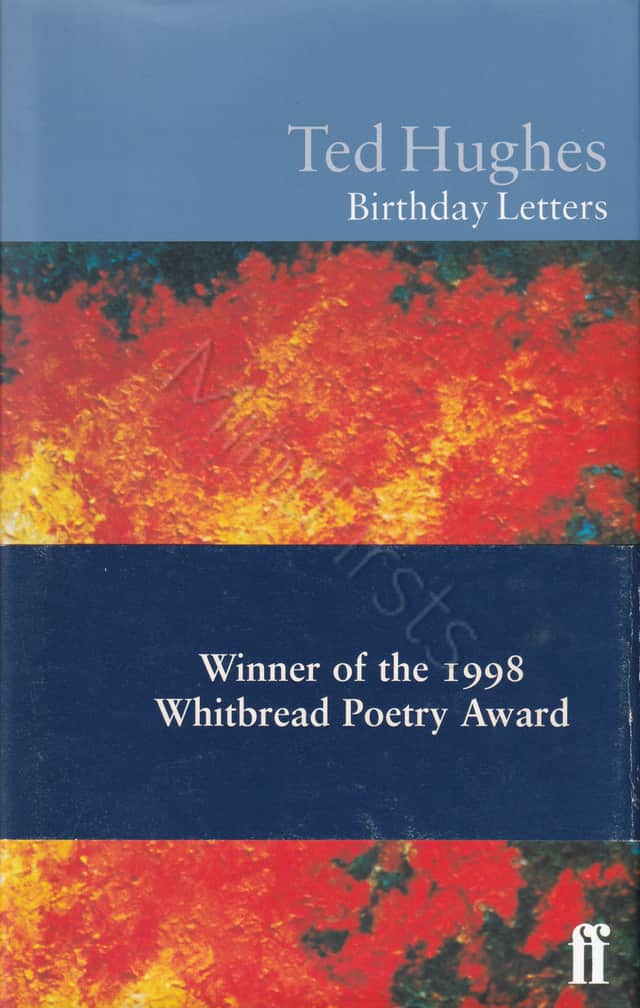Established
2004
Relaunched
2024
Our booksHow we tradeAbout usCredits & thanksYour account
- Home page
- Our books
- How we trade
- About us
- Credits & thanks
- Your account
- Your cart
MENU
Birthday Letters
Historically significant presentation copy of Ted Hughes's Birthday Letters

Ted Hughes ⦗Edward James Hughes, 1930–1998⦘
Second printing. 8vo. Pp. [ix], 198. Blue-grey paper boards, stamped in ecru to spine. Jacket art by Frieda Hughes.
With the scarce 'Whitbread Book of the Year' wraparound band. Page-long inscription on the flyleaf to his life-long friends Liz and Ernest [Martin], ending with a line from his poem 'Climbing into Heptonstall' (where Plath is buried): "Before us stands yesterday." In a laid in postcard-sized notecard, headed with his home address in Devon and dated '3rd Feb. 98', Hughes confesses his motivation in publishing Birthday Letters only months before his death: "Here's 'a tale plainly told.' A tale I should have told 30 years ago, maybe."
Brought together by their shared love for the West Country, and Devon in particular, Hughes and social theorist Ernest Martin resided twenty miles apart. A pioneer of oral history research during the 1970s, described by L.A.G. Strong as "one of our most radical writers" and by E.P. Thompson as "not just a social historian but a prophet", Martin's papers relating to the history and literature of the West Country are held at the University of Exeter.
Of special interest to Hughes historians. Joints starting, front board faintly bruised to upper edge, else Fine.
Winner of the 1998 Forward Poetry Prize for best collection, the 1998 T.S. Eliot Prize, and the 1999 British Book of the Year award. A New York Times Notable Book of the Year for 1998. Hughes's magnificent riposte, written over a 25-year period, to sundry doubters of the psychic cost engendered by Plath's suicide. Comprising 88 poems, all but two addressed to his former wife, they cover the full span of their relationship, from his first sighting of her as a Fulbright scholar in Cambridge to the aftermath of her untimely death.
The broadcaster and couple's mutual friend, Melvyn Bragg, unearthed drafts of an unpublished "Last Letter" in the British Library with the help of Hughes's widow, Carol, which was then printed on the 11th October 2010 issue of The New Statesman. Confessional, unfinished, and raw in its searing focus on events leading up to her demise, it serves as a haunting coda to the collection.
"To read [Birthday Letters] is to experience the psychic equivalent of 'the bends'. It takes you down to levels of pressure where the undertruths of sadness and endurance leave you gasping." –Seamus Heaney, Irish Times
[Keith Sagar, Ted Hughes: A Bibliographical Supplement 1996–2013, A118]
special feature
presentation copy
format
hardback
publisher
Faber and Faber
published in
London
publication year
1998
ISBN
0571194729
height × width
22.5 × 14.5 cm
genre
poetry
language
English
binding style
paper-covered boards
binding state
original binding, joints starting
condition . . .
near fine
of jacket
mint
GBP£ 1,500
EUR€ 1,720
USD$ 2,040
ref.U3K U74